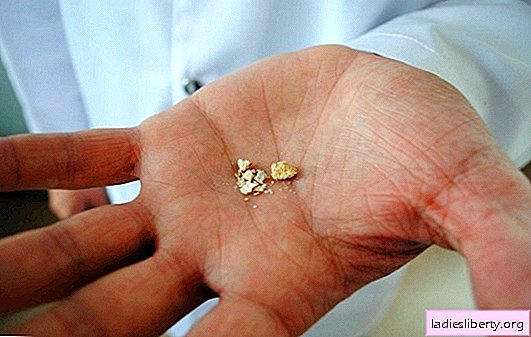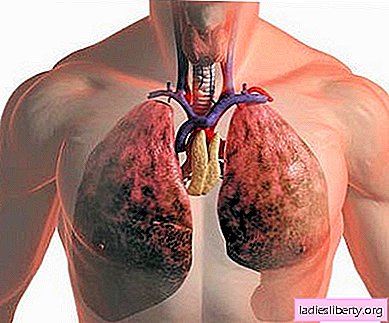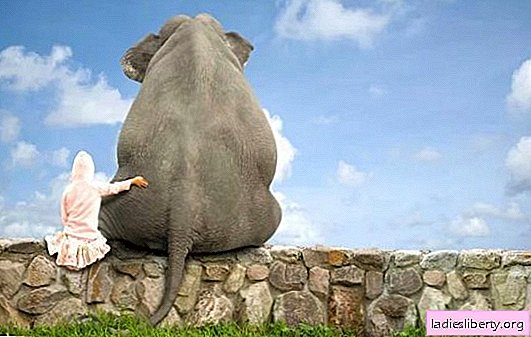
A condition in which a person develops kidney stones is called nephrolithiasis. This disease, unfortunately, is chronic.
It recurs from time to time, causing a lot of trouble to the patient.
Consider in more detail the symptoms of kidney stones in men and methods of treating this ailment.
Kidney stones in men: causes
The following factors can provoke the development of kidney stones in men:
1. The hereditary predisposition of a person to the formation of kidney stones.
2. Long-term treatment with some potent drugs.
3. Chronic pathology of the renal or genitourinary system of a person.
4. Violation of the general metabolism, because of which the patient rises in the level of calcium or uric acid.
5. Lack of active (especially sedentary) lifestyle.
6. Inadequate fluid intake, as well as severe dehydration.
7. The use of low-quality water, which may contain "heavy" metals and salts. Moreover, the so-called "hard water" in some regions is becoming the main reason for the formation of kidney stones.
8. Lack of vitamin and other beneficial substances in the body.
9. Improper nutrition. In this case, the frequent use of acidic, salty and spicy foods, which disrupts the kidneys and retains fluid in them, is especially harmful.
Important! Salt in the body slows down the elimination of fluid, which contributes to the formation of edema.
10. Adenoma in the prostate gland in men is a fairly common reason for the formation of kidney stones, since in this condition all the conditions for the development of this disease are created.
11. The lack of enzymes.
12. Chronic diseases of the digestive system (ulcer, gastritis) can indirectly affect the development of nephrolithiasis.
13. Work in harmful conditions.
14. Permanent hard physical labor.
15. Stagnant urine.
16. Inflammation or prolapse of the kidney.
17. Blood circulation in the kidneys due to a recent injury.
Kidney stones in men: symptoms and signs
The formation of kidney stones in men is usually accompanied by such manifestations and features of the course:
1. At the very beginning, the disease is accompanied by dull, aching pain in the lumbar region. Gradually, the pain syndrome intensifies, causing a lot of suffering to a person. In this case, the pain can be localized both on one side and immediately on both sides.
A characteristic feature of pain with kidney stones is that it may not be constant and may increase with a change in body position, physical exertion, or stone movement from the kidney to the urethra (in the latter case, the person will feel terrible pain in the entire abdomen, burning and cutting )
2. Renal colic is also a common symptom of urolithiasis. It is accompanied by sharp paroxysmal pains that can suddenly occur and also disappear imperceptibly. On average, the duration of such colic can last up to three days. Such attacks are explained by the fact that during the movement of stones in the urinary tract, the mantle intensifies, which causes a spasm.
In addition, a long walk, sudden physical exertion, movement with shaking, cycling, etc. can cause these colic.
In this case, pain in men can also be localized in the inguinal region and the lateral abdomen.
In this state, a person cannot lie comfortably to get rid of pain. Only a strong analgesic can suppress an attack.
3. Together with bouts of pain, the patient may suffer from nausea, vomiting, excessive sweating and loss of appetite. His general condition also worsen - decreased performance, there will be aches in the body, weakness.
4. Bloating and frequent painful urge to urinate are very characteristic (they are also false).
5. Clouding of urine due to the presence of mucus. In this case, urine itself may become darker and thicker. Due to blood impurities, it is also reddish.
6. Blood in the urine is usually observed when stones from the kidney exit the urethra, which damage the urinary tract with their sharp edges. This condition is usually accompanied by severe pain and burning.
7. Fever indicates acute inflammation. It can also indicate the development of pyelonephritis - complications.
8. An increase in blood pressure is a serious sign that indicates the neglect of the disease. Moreover, if in this state a person has difficulty urinating, especially urinary retention, then he needs to install a special urinary catheter, otherwise the emptying process will be disrupted.
It is important to know that with urinary retention for several hours a person may develop a condition such as uremia (poisoning of the body with toxic substances, which against the background of renal failure cause even more harm to the body). For this reason, it is important to eliminate urinary retention until uremia begins to cause convulsions, vomiting, itching, and other dangerous symptoms.
Kidney stones in men: treatment features
If you suspect kidney stones, a man needs to see a urologist.
This specialist will prescribe the following diagnostic procedures:
1. Ultrasound of the kidneys and bladder.
2. Palpation of the abdomen.
3. History taking.
4. General blood and urine tests.
5. Advanced biochemical analysis of blood and urine.
The treatment of this condition is aimed at eliminating kidney stones, relieving pain, as well as preventing the formation of complications.
Traditional therapy involves the following:
1. If the patient has revealed small stones (up to three millimeters), then they are excreted independently with the help of a milk-vegetable diet and a special therapeutic drink (the patient needs to use alkaline mineral water).
2. When an infection is attached, antibiotics are prescribed.
3. Antispasmodics, Atropine injections are used for pain. If even this does not help eliminate renal colic, then novocaine blockade of the spermatic cord in men is performed.
4. To improve kidney function, nitrofurans are prescribed.
5. If the patient had large kidney stones, then surgical treatment is prescribed. Moreover, quite often non-invasive surgery called lithotripsy is practiced.
6. If a complication occurs, a nephrectomy can be performed.
After surgical treatment, the patient must comply with bed rest and a strict diet. On average, a rehabilitation course is between one and two months.
Kidney stones in men: treatment, consequences, prevention
Nephrolithiasis is considered a very dangerous disease, since it is able to affect one of the most important organs of the human body - the kidneys. Moreover, if this pathology is not cured in time, then it can hurt the systems (sexual, urinary) that are close to the kidneys.
The following possible complications of nephrolithiasis are distinguished:
1. A person may develop anemia and chronic renal failure.
2. Problems with urination and urinary retention.
3. Violation of the overall functioning of the kidneys.
4. Cystitis.
5. Problems in the male reproductive system (high risk of potency).
The formation of kidney stones in most cases can be avoided.
For this, men need to adhere to such medical recommendations:
1. Drink at least two liters of pure water per day. At the same time, soups and other liquids are not counted in the total amount drunk - only water.
2. Regularly visit a doctor, take tests and undergo an ultrasound of the kidneys. If any pathologies are detected, immediately begin treatment.
3. Timely treat any disease that may affect the formation of kidney stones.
4. Check your drinking water. In general, it is advisable to use special filters for water.
5. It is very important to be physically active. Any sport is suitable for that - from swimming from regular jogging in the morning. The main thing is to make yourself move and do it regularly.
6. Refuse addictions (smoking and drinking).
7. Avoid hypothermia.
8. Eat right. In this case, it is better to avoid excessively frequent consumption of sweet, salty, sour and spicy. The diet must necessarily be rich in all the necessary useful substances for the normal functioning of the body.
9. When the first pain and signs of kidney stones appear, you should immediately consult a doctor.











